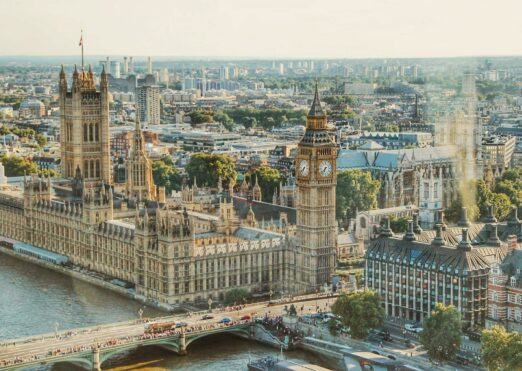Ten years on from the UK’s Modern Slavery Act: What’s next in the fight to end this crime?
March 26, 2025
By Tatiana Gren-Jardan, Head of the Policy and Advocacy Team at Justice and Care
A decade ago today, the Modern Slavery Act 2015 (MSA) became law – making the UK the global leader in the fight against this abhorrent crime. For those of us who had lobbied for it, it was a thrilling moment, brimming with anticipation and hope. But 10 years on, the battle is far from over.
While we’ve made significant strides forward, the mission to eradicate modern slavery continues with more urgency than ever – with more than 100,000 victims estimated in the UK alone. Today’s milestone presents for a moment of reflection on progress and poses a crucial question: What is next on our agenda to end this heinous crime for good?
Victim numbers keep rising, but convictions lag behind
One of the big achievements of the Modern Slavery Act was that it consolidated all the previous legislation in one and provided law enforcement with new tools, including a maximum life sentence for perpetrators.
Yet, 10 years later, the number of prosecutions and convictions remains stubbornly low. In 2023, there were 337 prosecutions and 209 convictions in England and Wales – despite more than 17,000 victims being referred for support the same year.
Referrals to the NRM have increased almost six-fold since the act was passed, showing public awareness on this issue has improved. However, access to support for victims has been narrowed by the immigration legislation introduced in the recent years.
To begin to fix the problem, the government has proposed to repeal most of the damaging modern slavery sections of the Illegal Migration Act 2024. However, we recommend that it goes further and reviews the impact of the Nationality and Borders Act 2023 which has reduced access to support for victims. Alongside this, ministers must urgently look into why the number of adults refusing to engage with the support system is at a record high.
As our Victim Navigator Programme – which has been recommended for a national roll-out by a Home Affairs Select Committee and the House of Lords special Committee – shows: Only when victims feel safe to come forward, will we be able to unlock progress against criminals.
Beyond transparency to human rights due diligence
The MSA established the UK as a global leader mainly because it required large companies to produce an annual statement on activities to address modern slavery in their supply chains. But still in 2025, Section 54 only requires businesses to report action on forced labour in supply chains – not to take action.
On Monday, the Home Office published updated guidance for businesses on practical steps to combat modern slavery. But many jurisdictions have advanced their legislation beyond transparency to mandatory human rights due diligence.
It’s time for businesses and the UK Government to take responsibility for supply chains. Transparency alone won’t change corporate behaviour.
Responding to emerging trends
Traffickers constantly evolve their tactics to exploit vulnerabilities and evade detection. Lately, we’ve seen more reported cases of homes being ‘cuckooed’ by ruthless criminals and an alarming increase in British children being coerced into crimes.
The Modern Slavery Act wasn’t designed to respond to these changes. So we’re delighted that the government is updating the law with new offences of child criminal exploitation and cuckooing, following campaigns from us and others.
Ultimately though, if we want to end modern slavery, efforts must be ramped up across the UK – on the issues I’ve highlighted and on the raft of other challenges that we face.
Ten years from now, I want to see traffickers serving severe sentences for enslaving their fellow human beings. I want to robust laws in place that protect vulnerable people and comprehensive support for every survivor. I envision a nation in which governments do more work with private and third sectors to battle this crime.
The truth is, the MSA was a positive move 10 years ago, but now we must reassess and look to the future, driven by the same mission: ridding Britain of slavery.
To read our recommendations for the government 10 years after the Modern Slavery Act 2015, you can visit our Policy and Research page.


